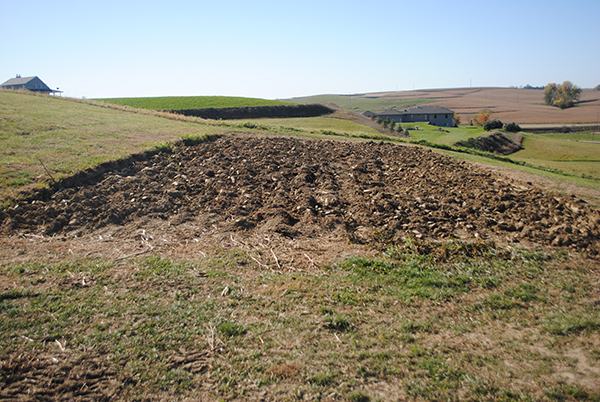Leaves are falling and the air is crisp; fall is definitely here. Another year eaten, canned and preserved! The garden season is over. It’s time to put away canning supplies, garden tools and prepare for winter to come.
The garden looks barren and boring. I already miss the color and purpose of this space.
In preparation for spring, consider Ward Upham’s, K-State Extension Agent’s, advice:
“Fall is the preferred time to prepare garden soil for next spring’s vegetable garden. Spring is often wet making it difficult to work soil without forming clods that remain the rest of the season. Fall usually is drier allowing more time to work the soil when it is at the correct soil moisture content. Even if you work soil wet in the fall and form clods, the freezing and thawing that takes place in the winter will break them down, leaving a mellow soil the following spring.
Insects often hide in garden debris. If that debris is worked into the soil, insects will be less likely to survive the winter. Diseases are also less likely to overwinter if old plants are worked under. Also, garden debris will increase the organic matter content of the soil. Working the debris into the soil is easier if you mow the old vegetable plants several times to reduce the size of the debris.
Fall is an excellent time to add organic matter. Not only are organic materials usually more available in the fall (leaves, rotten hay or silage, grass clippings) but fresher materials can be added in the fall than in the spring because there is more time for them to break down before spring planting.
As a general rule, add 2 inches of organic material to the surface of the soil and till it in. Be careful not to over till. You should end up with particles the size of grape nuts or larger. If you work garden soil into the consistency of flour, you have destroyed the soil structure.”
Remember, soil is the main ingredient to a gardens success. Spring is just a few snow storms away, I’ll be eager to dig in when it’s all over. Happy fall!
P.S. There are more and more gardeners planting a winter cover crop. There are many soil advantages to this and I will blog about it next!





